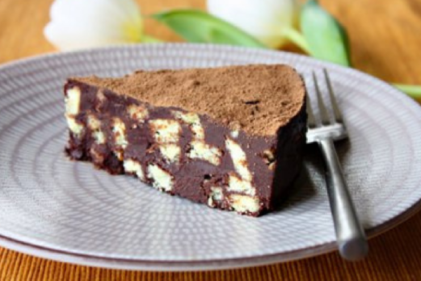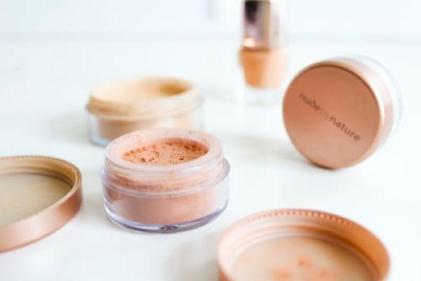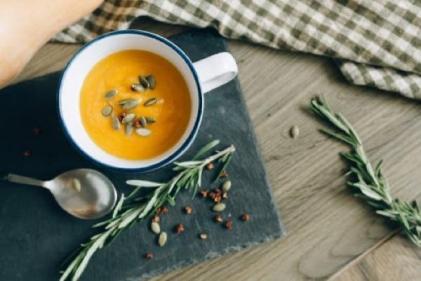The freezer and microwave are two appliances that busy parents rely on a daily basis. Yet for some of us, using them comes with a slight feeling of guilt.
Research* carried out by Iceland Ireland shows that 56% of mums regularly cook food from scratch to freeze it for later, with 47% admitting to doing so for convenience reasons.
Realistically, frozen food is a part of our diet, and it’s not necessarily a bad thing.
To learn how to navigate the frozen food aisle with confidence, to follow all the safety rules correctly and understand how to make the most of your freezer, we sat down with Elsa Jones, qualified nutritional therapist, mum of two and author of bestselling book ‘Goodbye Sugar’.
Why do you think some people have a bad image when it comes to frozen food?
I think it’s because when we think of frozen food, we think of unhealthy food, like ready-made meals, frozen pizzas, ice-cream but probably what we don’t think of is all the fruits and vegetables which can be frozen and consumed easily and readily, such as blueberries, butternut squash or peas, which are as good for you frozen as they are fresh!
Should frozen food be considered a processed food?
It depends; if you freeze blueberries, put them into a package and the only ingredient listed is “frozen blueberries”, I wouldn't consider that processed. It’s totally natural.
Is fresh food always better than frozen food?
Not necessarily. Researchers have shown very little difference between fresh and frozen when it comes to fruits and vegetables. In some cases, there can actually be a slightly better nutritional value in frozen foods. In particular, when fruits and vegetables are frozen when they are at their peak in terms of ripening - ie, when they are as full of nutrients - all the nutrition then is preserved. Sometimes fresh fruits and vegs can spend a lot time in transit, in storage, on the supermarket shelves before they end up in your fruit bowl. In my opinion, both have their place.
Of course, we should all be eating fresh fruits and vegetables, but I just think that anything that makes healthy eating easier for people is great. The fact is about ¾ of the Irish population don’t get their five-a-day and it’s all down to time constraint, busy lives, tiredness, not having enough energy at the end of the day to start chopping vegetables. Or sometimes it's down to budget. If you are struggling to get your fruit and veg intake, it can be wise to consider including more frozen food because it will make you more likely to use them and therefore, get that intake that you're missing out on.
What are the main advantages of cooking with frozen food when you are a busy parent?
First, it’s a matter of ease. Having, for example, a bag of frozen butternut squash or stir-fried vegetables at hand will make you more likely to cook a healthy meal, and less likely to go for a ready-made pizza or a takeaway.
This is also a budget-friendly option for a family. Let’s say sometimes you like to make a tropical smoothie with a bit of pineapple and mango. You don’t necessarily need a full pineapple but just a handful, and then it might be another month before you want to make that smoothie again so having a bag of frozen pineapple would come in handy then. It solves a lot of waste issues. When you make a Thai Curry and you need a small amount of ginger or coriander, using frozen products prevents you from throwing half the packet in the bin.
It can also be a great way to try food such as quinoa, brown rice, cauliflower rice, which we don’t always know how to cook or have the time to.
What are some safety rules to follow when cooking for your family from frozen foods?
It really depends on the food so it is really important that you follow the instructions on the package, especially if using meat or fish. Certain things can be used straight from frozen and added to a stir-fry or microwaved, such as peas, when meat usually needs to be cooked through. When you look at the ingredient list, you want a small number of ingredients and you want to be able to recognise everything. You don't want to see a big long list of ingredients that you can’t pronounce. If you pick up a bag of frozen mango, all it should say is “mango”.
What are some staples parents should always keep in their freezer?
I know my kids like frozen peas, corn, carrots - they work really well because you can throw them in rice or pasta and it’s a good way to be getting more colours into their diet. Personally, I like having frozen butternut squash at hand as it is something that babies and toddlers like a lot, it works really well blended into sauces or purees. I often use a bean and quinoa mix as I don’t like to eat too much meat and it’s a good vegetarian option for Meatless Mondays. Berries, mango or pineapple also come in handy.
In Ireland, we don’t eat enough fish and you can get really good quality frozen fish, very lightly seasoned, and it makes eating fish easier and more accessible.
What type of frozen food would you steer clear from?
I would limit the highly-processed ready-made meals, frozen pizzas, garlic bread, frozen desserts or pastries. Let’s put it this way: if a food is unhealthy before it’s frozen, it will still be unhealthy when it’s unfrozen.
How long can we keep frozen food in our freezer?
If you haven’t opened it, you usually can keep food for 6 to 8 months in your freezer. If you open the package, it’s usually up to about 3 months.
Is it safe to freeze baby food?
Absolutely. I have a four-year-old and a two-year-old and I would have always batch-cooked for them and always frozen their meals, and I still do. The only thing I wouldn’t encourage you to do would be that if you only use part of a portion you have frozen, I wouldn’t re-freeze it again.
What mistakes do people make at home when it comes to freezing food?
Probably not covering it properly. Getting proper freezer bags or BPA-free containers is important so you don't end up getting that frost on the food. Make sure the food is well-covered and sealed if you want it to freeze well and stay fresh.
Also, before you freeze something, you should ask yourself “who is going to eat this”. In other words, can our family eat it all together so in that case you could freeze an entire tray of lasagna, or do you only have a few portions left and then one or two people could have that as a meal at a later date, so you should freeze it in pre-cut portions.
*Survey carried out by Iceland Ireland among 97 mums in Ireland.












